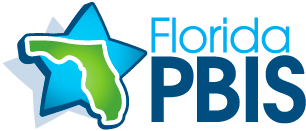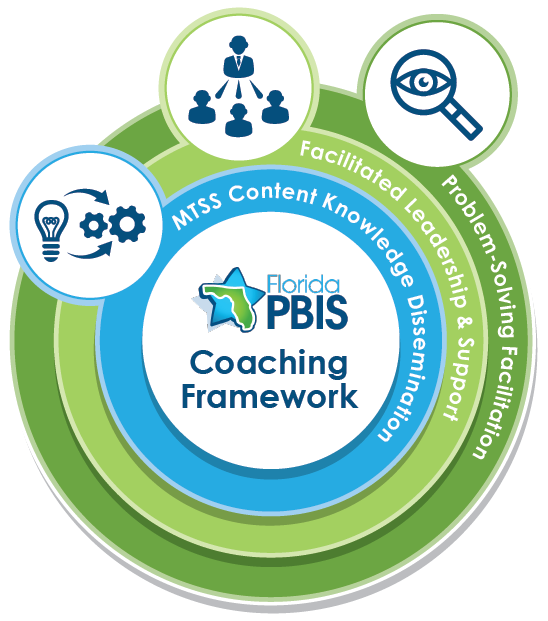Coaching
FLPBIS Coaching Framework

The FLPBIS Project relies on coaching to implement PBIS with integrity. It is how the latest research is translated into practices used by schools across the state.
“Coaching” helps people work well together and use practices effectively. It reflects a relationship where everyone has an equal say in what takes place, and everyone plays a role in supporting the decisions. The goal of coaching in schools is to enhance PBIS fidelity and student outcomes.
Educators use coaching to:
- Identify and reduce/eliminate barriers to effective practices
- Achieve desired goals at the student, classroom, school, district, and/or community level
- Help those involved to increase their expertise and skills
Coaching is used at every level of education.
Regular data collection and other feedback helps to improve practices.
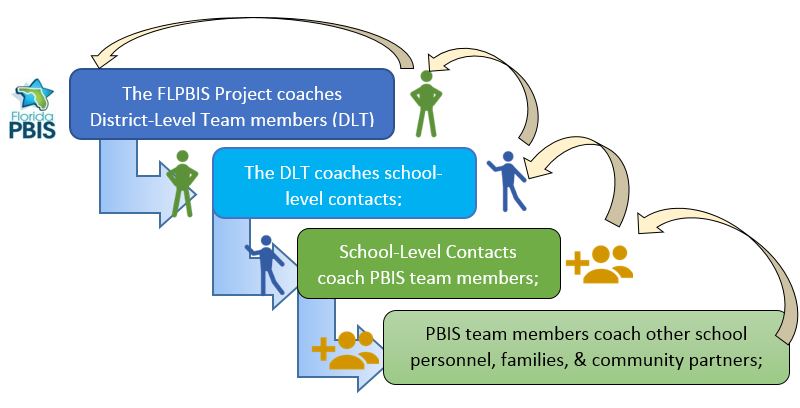
Essential Skills for Coaching
Coaching requires fluency with the problem-solving process, along with leadership skills and strong instructional skills for specific content related to MTSS:
MTSS Content Knowledge Dissemination
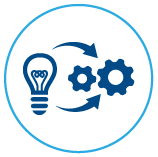
- PBIS
- Behavior Principles
- Data-Driven Decision-Making
- Implementation Fidelity
Facilitated Leadership & Support

- Interpersonal Communication
- Effective Communication
- Collaborative Teaming
- Family and Community Engagement (FACE)
- Professional Learning
- Training
- Practice-based Coaching
- Technical Assistance
Problem-Solving Facilitation
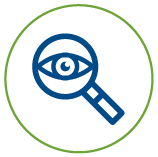
- Problem Solving
- Problem ID
- Problem Analysis
- Intervention Design & Action Planning
- Evaluation
Additional Resources
-
Learn more about coaching within an integrated academic and behavioral multi-tiered system of supports.
-
Visit our District-Level and School-Level coaching pages for additional resources.
-
If you're coaching a school-based team to prepare for FLPBIS training, you can find our readiness materials on our District-Level page.
